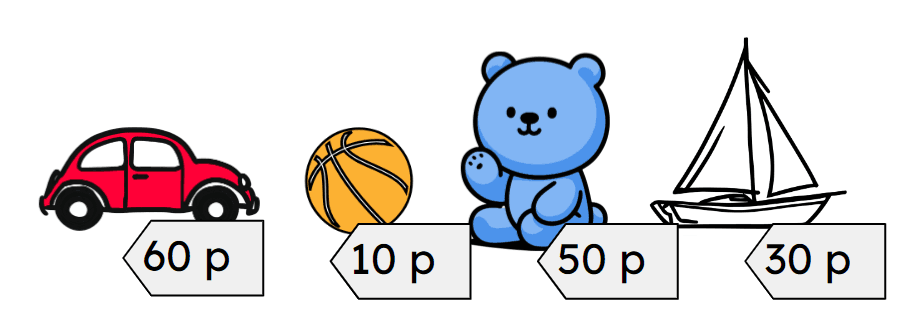Myths about teaching can hold you back
- Year 2
Solve problems involving multiples of ten in a range of contexts
I can solve problems involving multiples of ten in a range of contexts.
- Year 2
Solve problems involving multiples of ten in a range of contexts
I can solve problems involving multiples of ten in a range of contexts.
These resources will be removed by end of Summer Term 2025.
Switch to our new teaching resources now - designed by teachers and leading subject experts, and tested in classrooms.
These resources were created for remote use during the pandemic and are not designed for classroom teaching.
Lesson details
Key learning points
- Unitising and known facts help you to add and subtract multiples of ten
- If 3 + 2 is equal to 5 then 3 tens + 2 tens is equal to 5 tens which is equal to 50
- If 5 - 2 is equal to 3 then 5 tens subtract 2 tens is equal to 3 tens which is equal to 30
Keywords
Add - Finding the total, or sum, by combining two or more numbers.
Subtract - Taking one number away from another.
Multiple of ten - Groups of ten.
Common misconception
Children may rely on counting in tens rather than using known facts to add and subtract multiples of ten.
Encourage children to look for patterns as they add and subtract multiples of ten. Compare to the single-digit facts they know. Make a list of known facts to refer to.
To help you plan your year 2 maths lesson on: Solve problems involving multiples of ten in a range of contexts, download all teaching resources for free and adapt to suit your pupils' needs...
To help you plan your year 2 maths lesson on: Solve problems involving multiples of ten in a range of contexts, download all teaching resources for free and adapt to suit your pupils' needs.
The starter quiz will activate and check your pupils' prior knowledge, with versions available both with and without answers in PDF format.
We use learning cycles to break down learning into key concepts or ideas linked to the learning outcome. Each learning cycle features explanations with checks for understanding and practice tasks with feedback. All of this is found in our slide decks, ready for you to download and edit. The practice tasks are also available as printable worksheets and some lessons have additional materials with extra material you might need for teaching the lesson.
The assessment exit quiz will test your pupils' understanding of the key learning points.
Our video is a tool for planning, showing how other teachers might teach the lesson, offering helpful tips, modelled explanations and inspiration for your own delivery in the classroom. Plus, you can set it as homework or revision for pupils and keep their learning on track by sharing an online pupil version of this lesson.
Explore more key stage 1 maths lessons from the Composition of multiples of 10 unit, dive into the full primary maths curriculum, or learn more about lesson planning.

Licence
Prior knowledge starter quiz
6 Questions
Q1.In this pyramid, two blocks add together to make the block above it.
What is the missing number at the top of the pyramid?
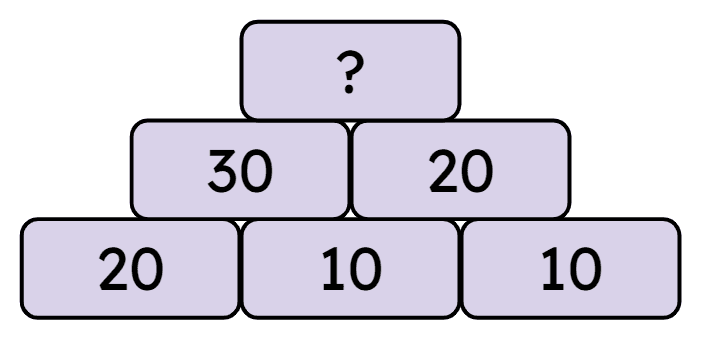
Q2.What is the missing part in this part-part-whole model?
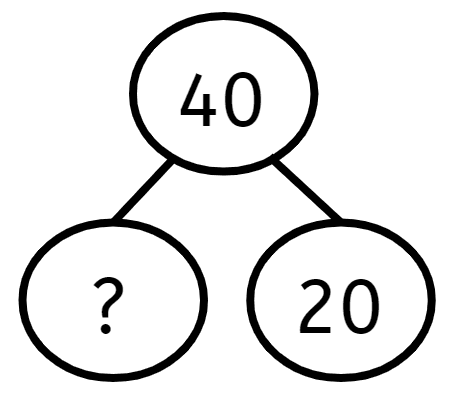
Q3.What is the missing part in this bar model?
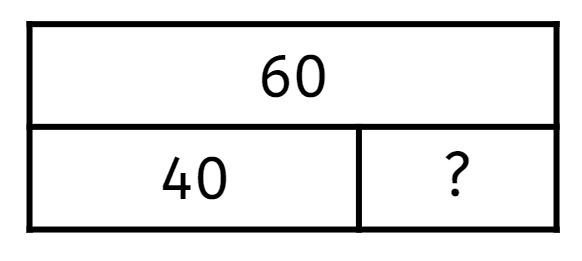
Q4.What is the missing part in this equation? 50 − = 10
Q5.Andeep buys a pencil for 20 p and a toy car for 60 p. How much has he spent? pence.
Q6.Sofia has 60 p in her pocket. The rest of her money is in her purse. She has 90 p altogether. How much money is in her purse? pence.
Assessment exit quiz
6 Questions
Q1.Lemons cost 20 p each and oranges cost 30 p each. What is the cost of one lemon and one orange? p
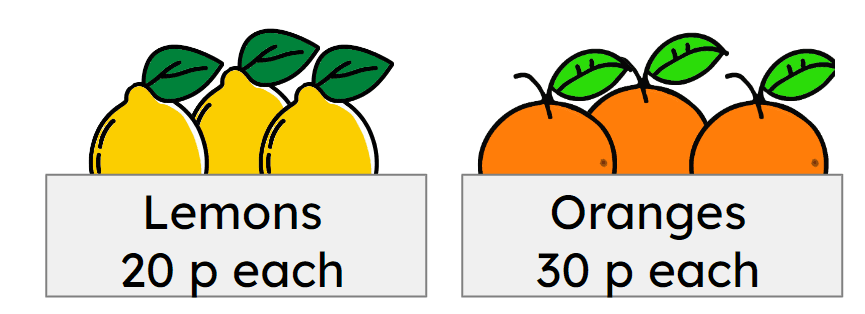
Q2.A car has travelled 40 miles of a 70 mile journey. How many more miles does it need to go? miles.
Q3.A flower is 60 cm tall and a ladybird is 20 cm up. How much further does it need to climb to get to the top? cm
Q4.Apples cost 10 p each and lemons cost 20 p each. Laura has 30 p. Which of the following can she buy?
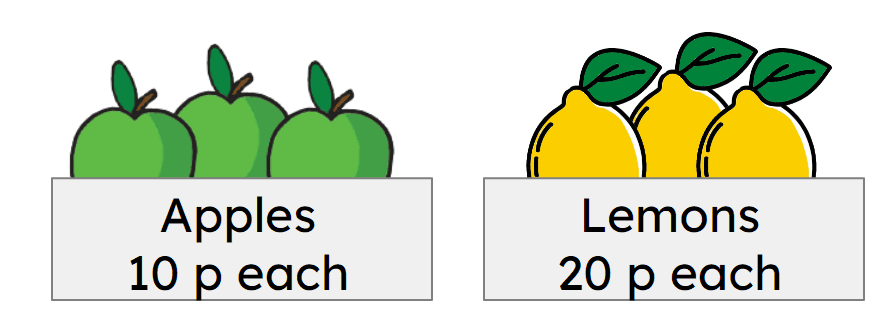
Q5.Oranges cost 30 p and pears cost 40 p. What is the cost of two oranges and one pear? p
Q6.Toy cars cost 60 p, a ball costs 10 p, a teddy costs 50 p and a boat costs 30 p. Andeep spends exactly 60 p. What could he have bought?
